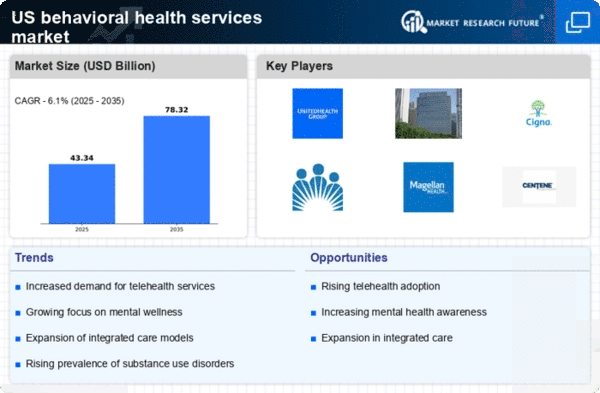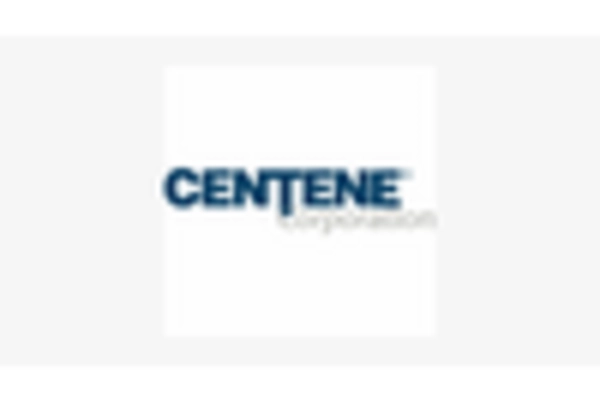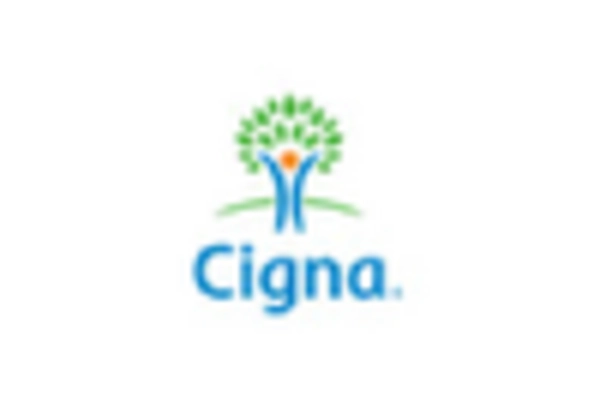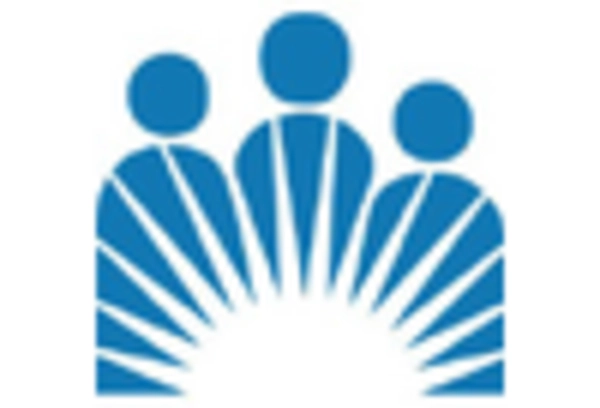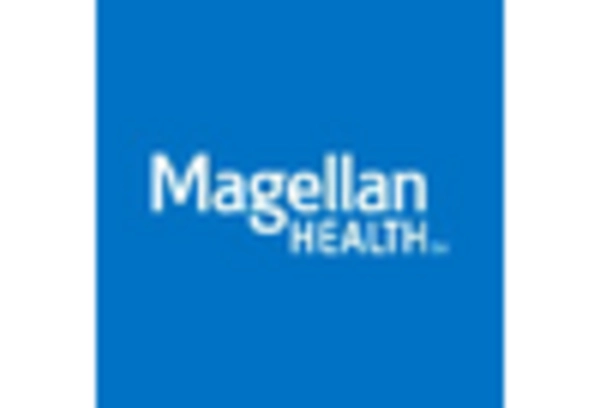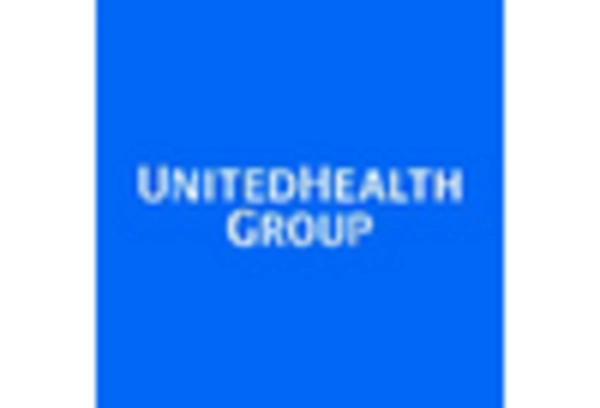Rising Mental Health Awareness
There is a notable surge in awareness regarding mental health issues. This heightened consciousness is largely driven by educational campaigns and advocacy efforts that aim to destigmatize mental health conditions. As a result, individuals are increasingly seeking help, leading to a growing demand for services. According to recent data, approximately 1 in 5 adults in the US experience mental illness each year, which translates to around 51.5 million people. This statistic underscores the necessity for accessible behavioral health services, as the market adapts to meet the needs of a more informed population. The increasing recognition of mental health as a critical component of overall well-being is likely to propel the growth of the behavioral health-services market in the coming years.
Policy Changes and Funding Increases
Recent policy changes and increased funding for mental health initiatives are playing a pivotal role in shaping the behavioral health-services market. Legislative efforts aimed at improving access to mental health care have led to expanded coverage under various insurance plans. For example, the Mental Health Parity and Addiction Equity Act mandates that mental health services be covered at the same level as physical health services. Additionally, federal and state governments are allocating more resources to mental health programs, with funding reaching approximately $4.5 billion in recent years. This financial support is crucial for enhancing service availability and quality, thereby fostering growth within the behavioral health-services market. As these policies take effect, they are likely to create a more favorable environment for both providers and patients.
Technological Advancements in Treatment
Technological innovations are significantly transforming the behavioral health-services market. The integration of advanced technologies, such as artificial intelligence and machine learning, is enhancing diagnostic accuracy and treatment efficacy. For instance, teletherapy platforms are becoming increasingly sophisticated, allowing for personalized treatment plans based on real-time data analysis. Furthermore, the market is witnessing a rise in mobile health applications that facilitate self-monitoring and provide users with immediate access to resources. These advancements not only improve patient outcomes but also streamline service delivery, making it more efficient. As technology continues to evolve, it is expected that the behavioral health-services market will further expand, accommodating a broader range of treatment modalities and improving accessibility for patients.
Focus on Holistic and Preventive Approaches
There is a growing emphasis on holistic and preventive approaches within the behavioral health-services market. This trend reflects a shift towards understanding mental health as interconnected with physical health, lifestyle, and social factors. Many providers are now adopting integrated care models that combine mental health services with primary care, promoting a more comprehensive treatment strategy. Additionally, preventive measures, such as community-based programs and early intervention strategies, are gaining traction. These initiatives aim to address mental health issues before they escalate, thereby reducing the overall burden on the healthcare system. As awareness of the benefits of holistic care continues to rise, the behavioral health-services market is likely to evolve, incorporating more preventive and integrative practices into its offerings.
Aging Population and Increased Need for Services
The aging population in the US is contributing to a heightened demand for behavioral health services. As individuals age, they often face various mental health challenges, including depression and anxiety, which necessitate specialized care. The US Census Bureau projects that by 2030, all baby boomers will be over 65 years old, leading to a significant increase in the number of older adults requiring mental health support. This demographic shift is prompting the behavioral health-services market to adapt by developing tailored programs that address the unique needs of older adults. Furthermore, the integration of geriatric mental health specialists into the workforce is becoming increasingly important to meet this demand. Consequently, the aging population is likely to be a driving force behind the expansion of the behavioral health-services market.


